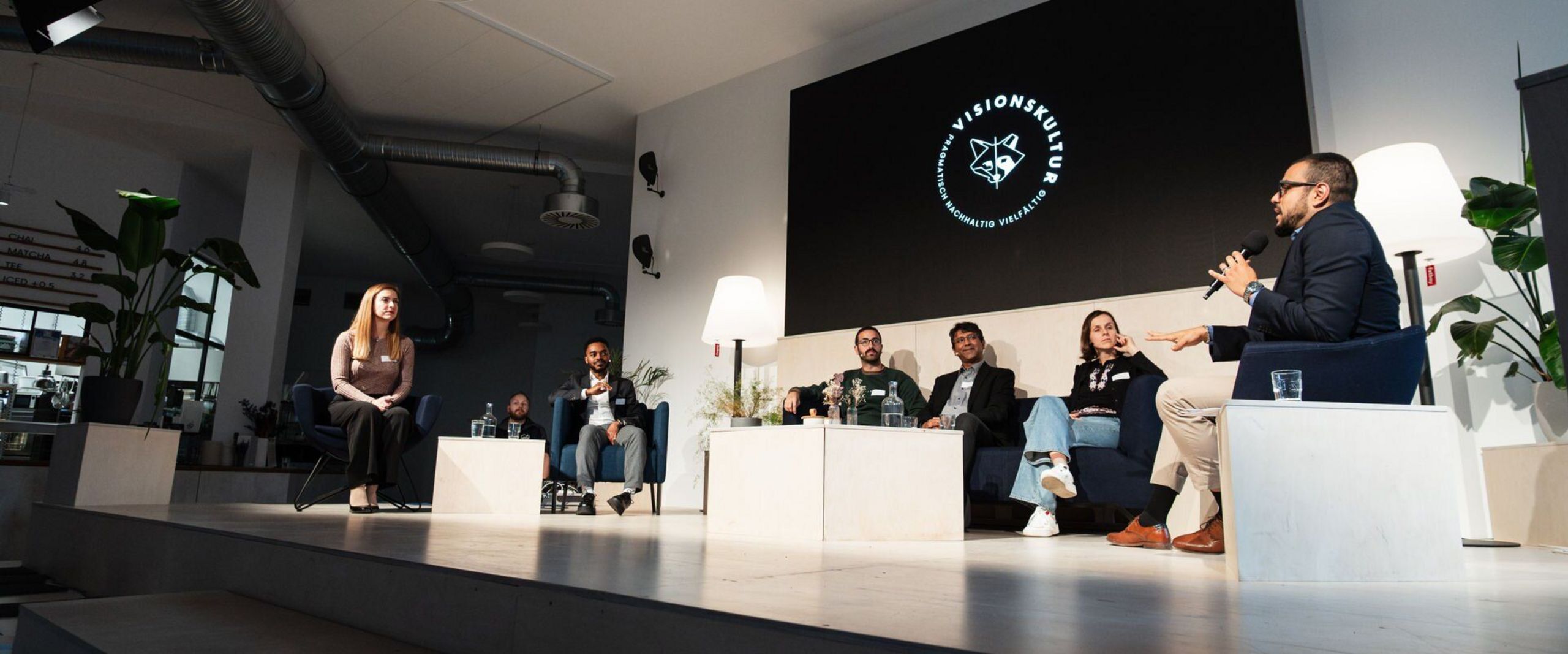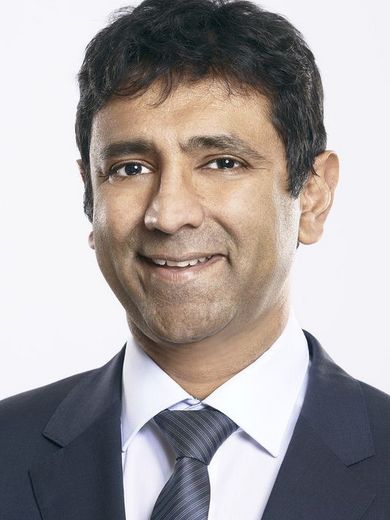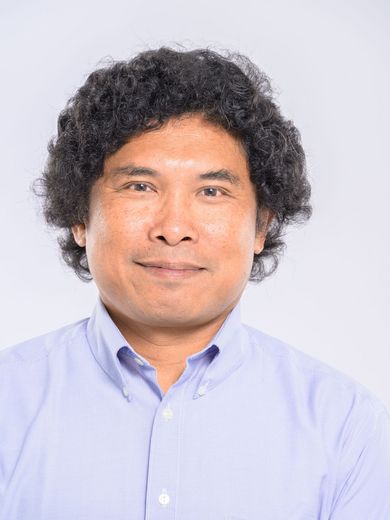
Experts and practicing entrepreneurs came together as part of Visionskultur's interactive and open panel discussions on the theme of Entrepreneurship and Migration at Volkshochschule Bremen. The Hochschule Bremen was part of the discussions, covering a topic of immense interest for the society and economy of Bremen.
On September 23, 2025, broad ranging discussions on “Entrepreneurship Meets Migration (Grundung trifft Migration Zukunftsschnack)” took place at the Fröhlichs Café in Volkshochschule Bremen. This event, organized by Visionskutur - an organization dedicated to fostering entrepreneurship, innovation, and community development, particularly in Bremen. It brought together a diverse audience eager to explore the intersection of entrepreneurship and migration and to discuss the challenges and opportunities faced by migrant entrepreneurs.
A Dialogue on Equal Footing
The discussions were noteworthy for being not just a conventional panel discussion; they served as a space for personal exchange and collective reflection. In an open atmosphere, personal experiences met expert insights. The audience was actively involved, contributing their own perspectives, transforming listening into engagement.
The discussions were moderated by Hachem Gharbi, the Managing Director of Visionskultur and a graduate of Hochschule Bremen. He guided the evening, ensuring that the discussions remained lively.
The Panelists and Their Perspectives
Representing the Hochschule Bremen and the Global Interactions Collective, Prof. Dr. Mayank Kumar Golpelwar, Professor for Intercultural Management emphasized the critical relationship between migration and entrepreneurship He emphasized that migrants often bring a higher willingness to take risks, a valuable trait in the context of starting a business, and highlighted the challenges that need to be overcome in this process.
The Migration and Integration Officer for Bremen, Nadezhda Milanova shared her experiences promoting sustainable and inclusive economic development. She presented participatory strategies for actively integrating migrant entrepreneurs into local markets, highlighting the need for supportive policies and community initiatives. Her focus on collaboration among various stakeholders underscored the importance of a holistic approach to integration.
Serial Entrepreneur Augusto Capece provided insights into startup ecosystems and innovation. Drawing from his extensive experience, he discussed challenges faced by migrant entrepreneurs, such as access to funding and market entry. He also shared success stories that illustrated how resilience and creativity can lead to thriving businesses, inspiring attendees to pursue their entrepreneurial ambitions.
Rezi Chikviladze, Managing Director, Syniotec spoke about the importance of community-building initiatives for entrepreneurs. He emphasized that fostering networks among migrant entrepreneurs can create collaborative opportunities and shared resources. His contributions highlighted the role of mentorship and peer support in overcoming barriers to business success.
Mariya Staykova, Tax Consultant and board member of KLUB DIALOG e.V., and also an alumna of Hochschule Bremen, provided insights into the financial and regulatory aspects that can influence the growth of new businesses. She explained the importance of understanding the structures of the German system.
Challenges and Opportunities
The panelists explored the complex reality of migrant entrepreneurs. Key challenges such as bureaucratic obstacles, complex tax requirements, and language barriers were openly discussed. A suggestion from the audience prompted consideration of introducing a second transactional language to facilitate access.
The topic of financing was also critically examined. Many in the audience expressed the perception that it is more difficult for migrants to obtain funding or loans. At the same time, it was noted that Germany offers numerous resources, which need to be made more accessible and communicated in a more coordinated manner.
Engaging Audience Participation
The interactive format encouraged vibrant dialogue, with many audience members sharing their thoughts and experiences. Many expressed the need for continued and open discussions and collaboration in this area.

Prof. Dr. Mayank Kumar Golpelwar
Intercultural Management und Intercultural Communication
+49 421 5905 4152
Email

Erwin Silaban
Lehrbeauftragter für Indonesische Studien
+49 421 5905 4201
Email